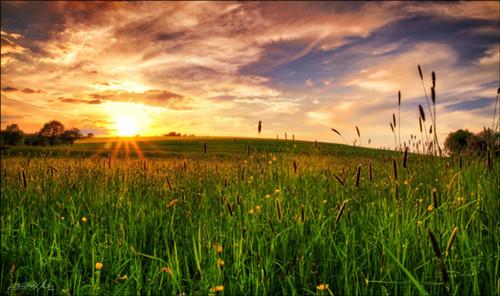2024年3月25日发(作者:唐山大地震观后感)

英国文学名词解释
ROMANTICISM浪漫主义: It was prevalent during the first
third of the nineteenth century (about 1800-1830). Romanticism
rejected the earlier philosophy of the Enlightenment, which
stresd that logic and reason were the best respon humans
had in the face of cruelty, stupidity, superstition, and barbarism.
Instead, the Romantics asrted that reliance upon emotion and
natural passions provided a valid and powerful means of
knowing and a reliable guide to ethics and living. The Romantic
Movement typically asrts the unique nature of the individual,
the privileged status of imagination and fancy, the value of
spontaneity over "artifice" and "convention," the human need for
emotional outlets, the rejection of civilized corruption, and a
desire to return to natural primitivism and escape the spiritual
destruction of urban life. Their writings often are t in rural,
pastoral or Gothic ttings and they show an obssive concern
with "innocent" characters--children, young lovers, and animals.
The major Romantic poets included William Blake, William
Wordsworth, John Keats, Percy Bysshe Shelley, and Lord Gordon
Byron. Contrast with Enlightenment.
RENAISSANCE文艺复兴: The term originally described a
period of cultural, technological, and artistic vitality during the
economic expansion in Britain in the late 1500s and early 1600s.
Thinkers at this time and later saw themlves as rediscovering
and redistributing the legacy of classical Greco-Roman culture by
renewing forgotten studies and artistic practices, hence the name
"renaissance" or "rebirth." They believed they were breaking with
the days of "ignorance" and "superstition" reprented by recent
medieval thinking, and returning to a golden age akin to that of
the ancient Greeks and Romans from centuries earlier--a cultural
idea that will eventually culminate in the Enlightenment of the
late 1600s up until about 1799 or so. The Renaissance saw the
ri of new poetic forms in the sonnet and a flowering of drama
in the plays of Shakespeare, Jonson, and Marlowe.
ROMANCE浪漫: In medieval u, romance referred to
episodic French and German poetry dealing with chivalry and the
adventures of knights in warfare as they rescue fair maidens and
confront supernatural challenges. The medieval metrical
romances rembled the earlier chansons de gestes and epics.
However, unlike the Greek and Roman epics, medieval romances
reprent not a heroic age of tribal wars, but a courtly or chivalric
period of history involving highly developed manners and civility.
Their standard plot involves a single knight eking to win a
scornful lady's favor by undertaking a dangerous quest. Along
the way, this knight encounters mysterious hermits, confronts evil
blackguards and brigands, slays monsters and dragons,
competes anonymously in tournaments, and suffers from
wounds, starvation, deprivation, and exposure in the wilderness.
Medieval romances often focus on the supernatural. In the
classical epic, supernatural events originate in the will and actions
of the gods. However, in cular medieval romance, the
supernatural originates in magic, spells, enchantments, and fairy
trickery. Divine miracles are less frequent, but are always Christian
in origin when they do occur, involving relics and angelic
visitations. A condary concern is courtly love and the
proprieties of aristocratic courtship--especially the
conquences of arranged marriage and adultery.
Enlightenment:启蒙运动the philosophical and artistic
movement growing out of the Renaissance and continuing until

本文发布于:2024-03-25 10:47:34,感谢您对本站的认可!
本文链接:https://www.wtabcd.cn/zhishi/a/1711334854172024.html
版权声明:本站内容均来自互联网,仅供演示用,请勿用于商业和其他非法用途。如果侵犯了您的权益请与我们联系,我们将在24小时内删除。
本文word下载地址:英国文学名词解释.doc
本文 PDF 下载地址:英国文学名词解释.pdf
| 留言与评论(共有 0 条评论) |